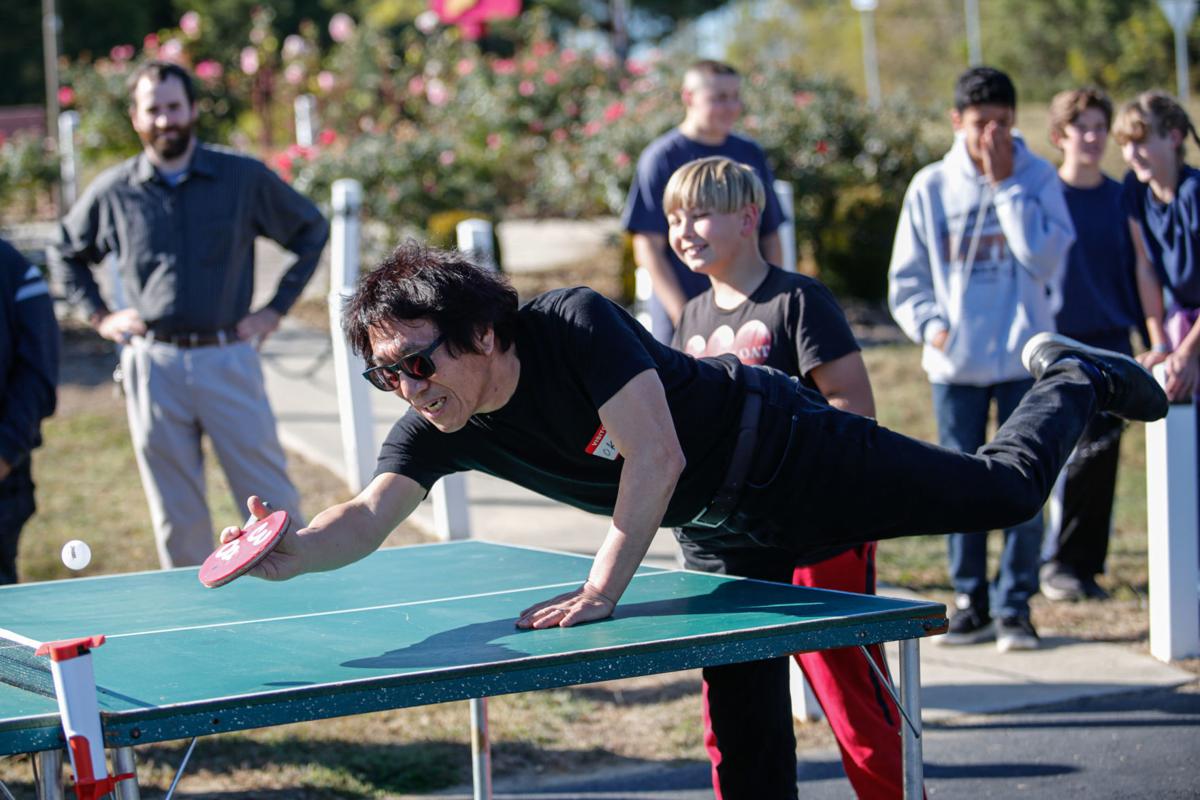Jesus said, in the Gospels of Mark 3:25, "If a house be divided against itself, that house cannot stand." This image, echoed by Abraham Lincoln in the prelude to the Civil War, is lamentably suitable for the modern Korean Peninsula. Divided along the 38th parallel after World War II, North and South Korea fought bitterly from 1950-1953. After battling to a stalemate, a ceasefire was negotiated in 1954, but no formal peace treaty was signed. Thus, the war technically continues to this day, leaving the divided land frozen in a perpetual Cold War. South Korean artist Oksang Lim (pictured) was born at the outset of the war. At 69 years of age, his entire lifetime has been framed by this ceaseless civil war. Along with fellow South Korea artist Jongku Kim, 57, Lim has set out to redefine the 38th parallel. While the arbitrary line of latitude has come to represent the division between warring communist and capitalist societies, the artists think of it more like the net dividing a ping-pong table. As such, they contend, it facilitates the exchange of ideas, perspectives, and philosophies, creating the conditions for a mutually enriching dialectic process. This is the vision behind the "38 Project," Lim and Kim's global tour to promote peace through table tennis. Stopping at cities around the world which also straddle the 38th parallel, they coordinate with local schools, museums, historians and cultural centers to promote awareness of the past and hope for the future. On one recent stop, the 38 Project entertained students in Fredericksburg, Virginia, sparking lively discussions over a ping-pong table set up at the Korean War Memorial Garden. Fredericksburg, keenly aware of its own role in the American Civil War, got to learn more about the civil war which still simmers in the Korean Peninsula. The tour will culminate in a symbolic match in the demilitarized zone which forms the modern border between North and South Korea. With table tennis already contributing to the thaw in relations between the warring nations, dating back to the 1991 unified Korean table tennis team, there is genuine hope that this latest surge of "Ping-Pong Diplomacy" will turn a house divided unto a house united.
More at Fredericksburg.com
